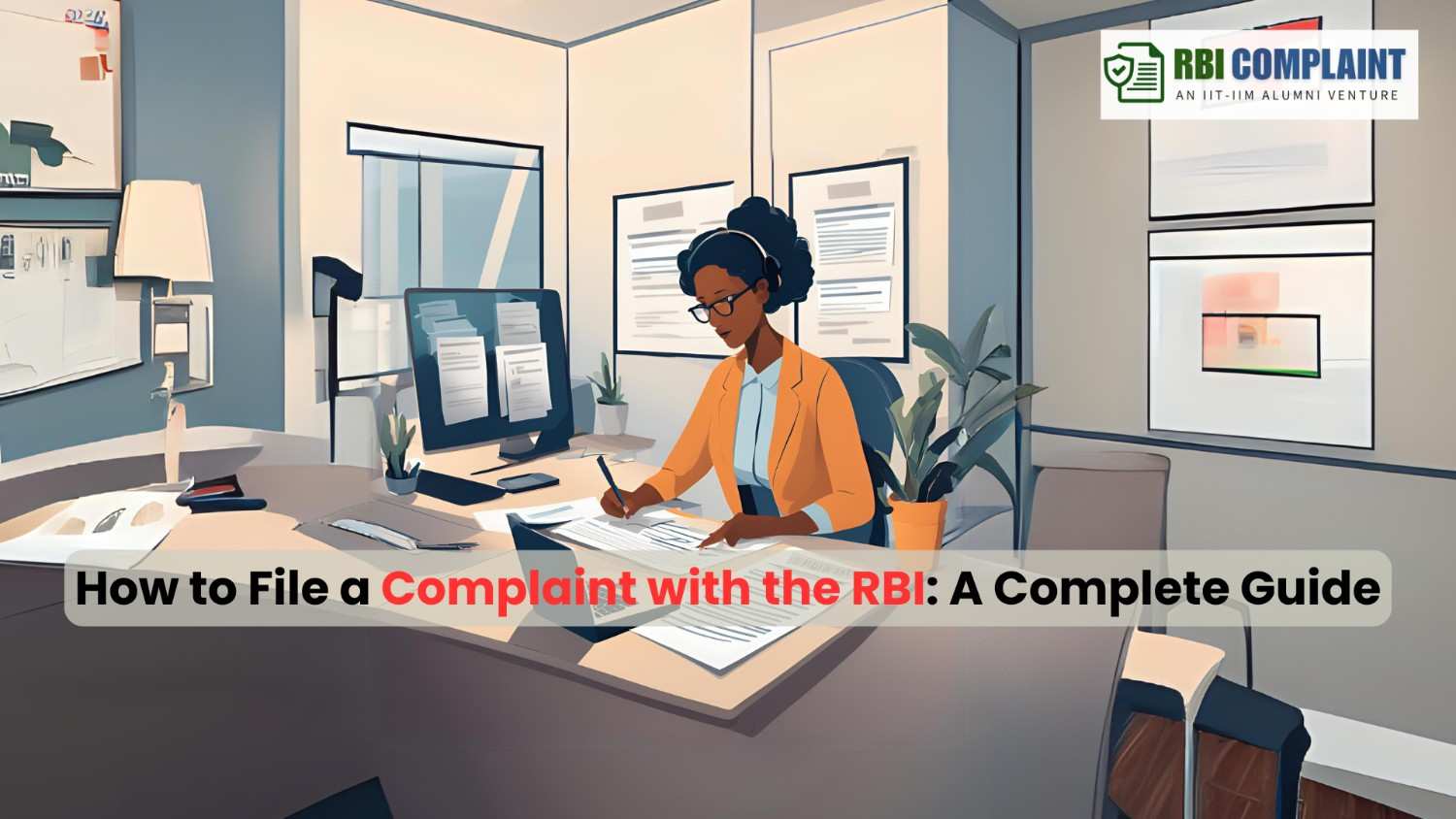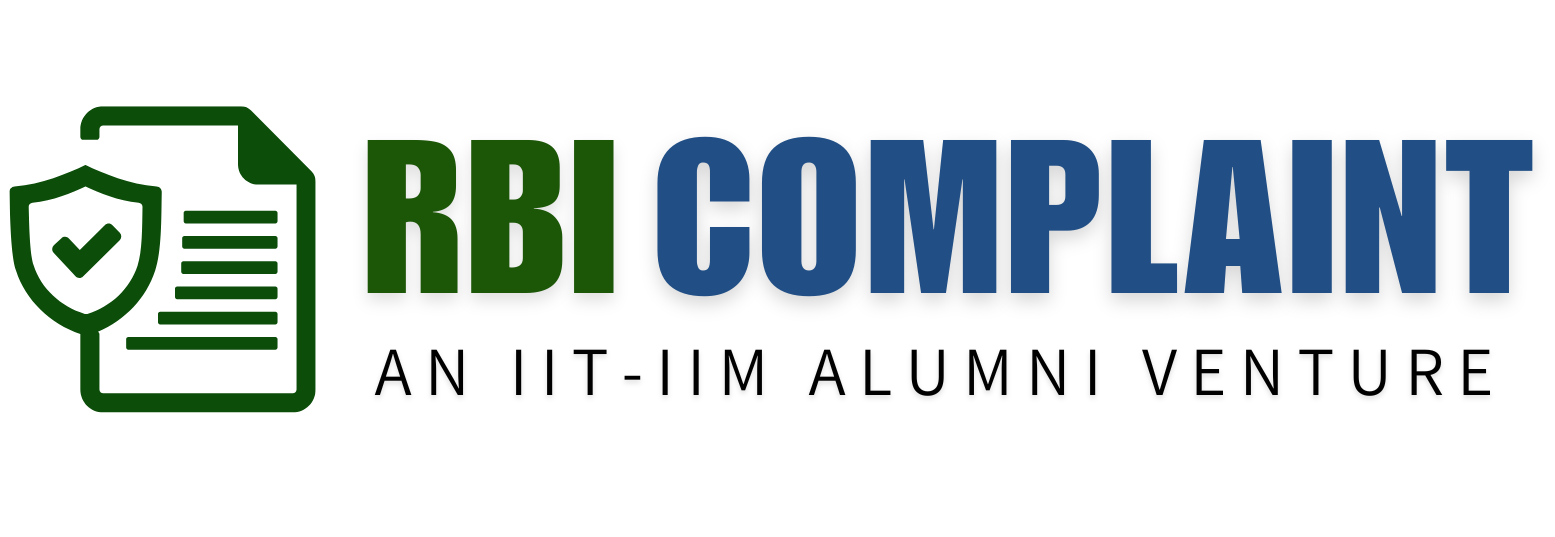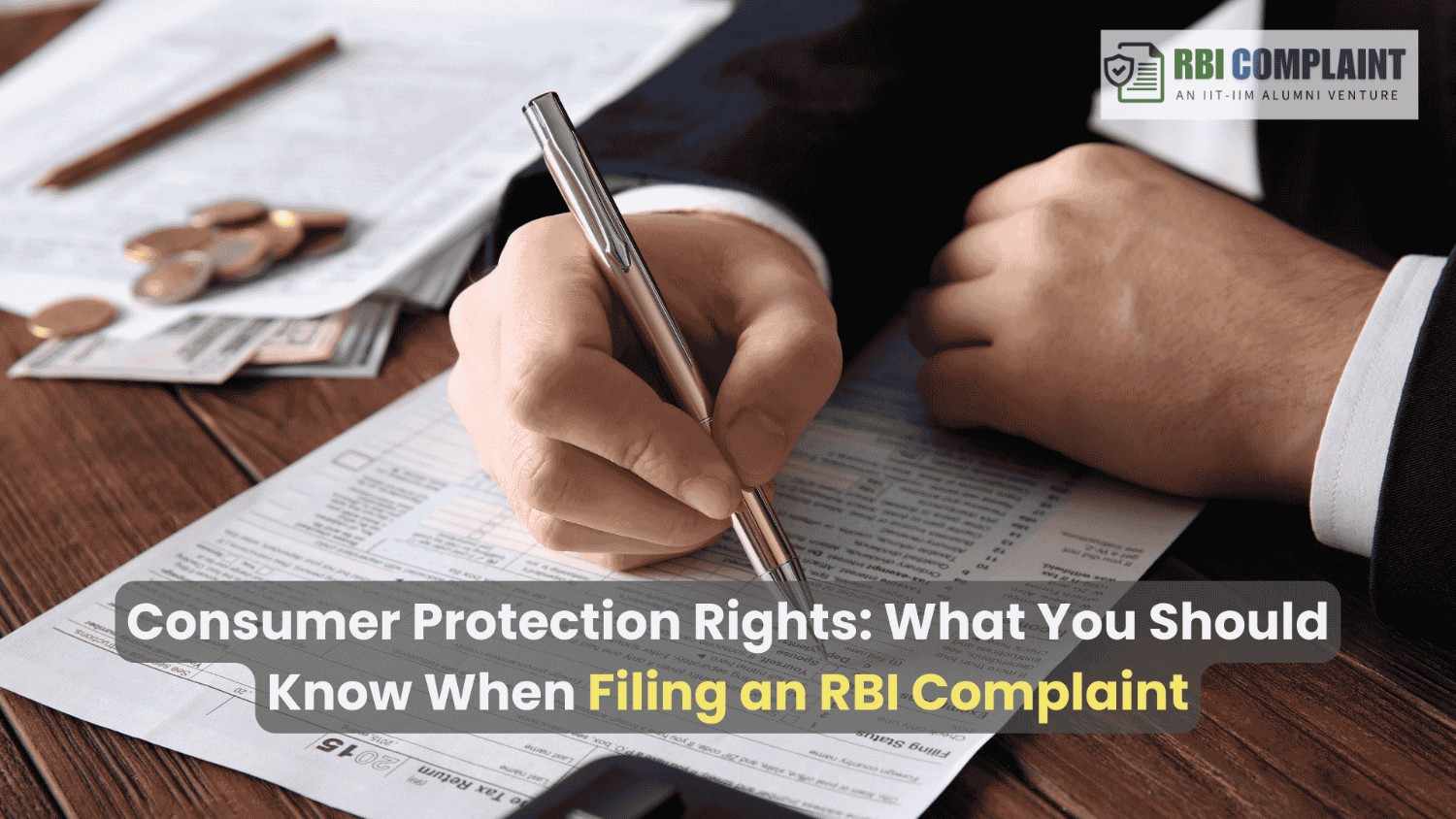· Consumer Protection · 5 min read
How to File a Complaint with the RBI: A Complete Guide
Learn how to file a complaint with the RBI effectively. Step-by-step guide for banking issues, frauds, and unresolved grievances. Get started now!

Filing a complaint with the Reserve Bank of India (RBI) can be a bit confusing if you don’t know the steps involved. Whether you have a grievance against a bank, non-banking financial company (NBFC), or digital payment service, the RBI has laid out specific procedures to ensure that your complaint is heard and resolved. In this guide, we’ll walk you through everything you need to know to file a complaint with the RBI.
Introduction
Have you ever faced an issue with your bank and didn’t know how to resolve it? Banks and financial institutions are bound by regulations, but sometimes things slip through the cracks. If you’ve been wronged by a financial institution and feel like you’re not getting the support you need, the Reserve Bank of India (RBI) provides a solution.
In this article, we’ll guide you through the exact process of filing a complaint with the RBI, whether you’re dealing with a bank, an NBFC, or a digital payment service.
What Is the Role of RBI in Complaint Resolution?
The RBI plays a pivotal role in overseeing banking and financial institutions in India. While it primarily serves as a regulator, the RBI also steps in when customers face unresolved issues. The RBI’s grievance redressal mechanism ensures that financial institutions comply with the rules, and customer complaints are handled efficiently.
When Can You File a Complaint with the RBI?
You can file a complaint with the RBI when your bank, NBFC, or payment service provider fails to resolve your grievance satisfactorily. But there are specific instances when you can reach out to the RBI.
Specific Scenarios for Complaints
Unfair banking charges
Unauthorized transactions
Issues with loans and credit cards
Poor service from your bank
Problems with NBFCs
Payment gateway failures
Different Types of Complaints Handled by the RBI
The RBI handles various types of complaints. These are usually categorized based on the entity you’re filing against.
Banking Complaints
These include issues related to:
Credit and debit cards
Loan defaults
Unfair interest rates
Unauthorized charges
NBFC Complaints
NBFC-related complaints may involve:
Loan agreements
Delayed disbursals
Hidden charges
Digital Payment Complaints
Complaints related to online payments, such as:
Failed transactions
Refund issues
Unauthorized debits
Step-by-Step Process to File a Complaint with the RBI
First Step: Contact Your Bank or NBFC
Before reaching out to the RBI, you must first contact your bank or NBFC to attempt to resolve the issue. Every institution has its own grievance redressal mechanism that you should use as the first step.
Second Step: Escalate to the RBI
If the institution fails to provide a resolution within 30 days, you can escalate the issue to the RBI.
Using the RBI’s Complaint Management System (CMS)
The RBI provides an online platform called the Complaint Management System (CMS), where you can escalate your unresolved complaints. This system is user-friendly and accessible via both a website and a mobile app.
How to Register a Complaint Online with the RBI?
Filing an Online Complaint via CMS Portal
To register your complaint online, follow these steps:
Visit the official CMS portal.
Select the institution against which you want to lodge a complaint.
Fill in the details about your complaint, including the reference number given by your bank or NBFC.
Attach any supporting documents (emails, statements, etc.).
Important Details Required for Online Complaint
When lodging your complaint, you’ll need:
Your contact details
A description of your grievance
Bank or NBFC account details
Copies of previous correspondence
Filing a Complaint Offline with the RBI
If you’re not comfortable with the online method, you can file a complaint offline.
Submitting a Written Complaint
Write a letter addressed to the Banking Ombudsman in your region. You can find the list of regional ombudsman offices on the RBI website.
Required Documents for Offline Submission
You must include:
A description of the issue
Copies of relevant documents
Your bank or NBFC’s response
What Happens After You Submit a Complaint?
Once your complaint is registered, the RBI will review the details and reach out to your bank or NBFC. If they find that your grievance is valid, they will take appropriate actions, which could range from recommending a solution to imposing penalties on the financial institution.
Time Frame for Complaint Resolution
The RBI usually takes about 30 to 60 days to resolve a complaint, depending on its complexity.
How to Track Your Complaint Status?
You can track your complaint online through the CMS portal. After submitting your complaint, you’ll receive a unique reference number, which can be used to track the status.
What If Your Complaint Is Rejected?
In rare cases, your complaint may be rejected if it lacks sufficient evidence or doesn’t fall under the purview of the RBI. If this happens, you can seek legal recourse or try other avenues like approaching the Consumer Forum.
Common Mistakes to Avoid While Filing a Complaint
Not providing sufficient evidence
Failing to first contact your bank or NBFC
Submitting incomplete details
Alternatives to Filing a Complaint with the RBI
In addition to the RBI, you can also approach:
Consumer Courts for legal disputes
Ombudsman Schemes for specific sectors
Financial Counseling Centers for advice
Conclusion
Filing a complaint with the RBI is a structured and relatively straightforward process once you know the steps. By first approaching your bank and then escalating through the RBI’s CMS portal or via an offline method, you can ensure your grievance gets the attention it deserves.



